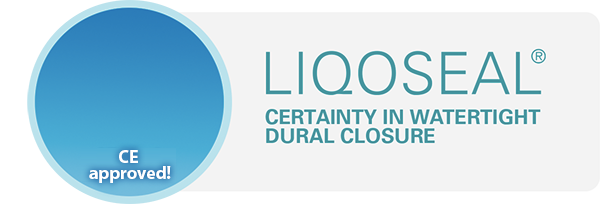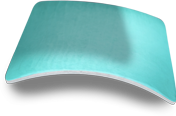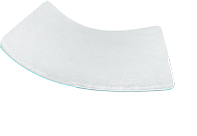Polyganics Announces CE Mark for NEUROCAP®, the Nerve Capping Device for Treatment and Prevention of Symptomatic Neuroma
Groningen, The Netherlands, 21 June 2016 – Polyganics, a privately held medical technology company focused on the commercialization of proprietary products and technologies for peripheral nerve reconstruction and regeneration, announced today that it has received the CE mark for NEUROCAP®, its nerve capping device. Polyganics intends to launch NEUROCAP® in several European countries later this year.
NEUROCAP® is an absorbable implant for the treatment and reduction of symptomatic neuroma in peripheral nerves. The device was cleared for sales in the United States in January 2016, and Polyganics introduced NEUROCAP® during the Annual Meeting of the American Society of Surgery of the Hand in Phoenix last January.
In February, the European STOP NEUROMA study started to gather evidence for the long-term effectiveness of NEUROCAP® in the reduction of painful neuroma formation. The first patients have been successfully enrolled at the MC Groep hospital in Emmeloord, The Netherlands, by Coordinating Investigator Mariëtta Bertleff, MD. Through this study, Polyganics is collecting more data on the clinical performance of NEUROCAP®’s ability to isolate the nerve end, and the product’s effectiveness with respect to the reduction of pain from the symptomatic neuroma and prevention of pain reoccurrence.
Rudy Mareel, CEO of Polyganics said, “CE regulatory approval is a key milestone for our nerve capping device. We strongly believe NEUROCAP® represents an important addition to the surgeons’ tool-box in the treatment of peripheral nerve injuries enhancing surgical outcomes and patient recovery.
Furthermore, if NEUROCAP® shows effectiveness in terms of preventing pain symptoms to return over a one-year period, the device could be used in the prevention of painful neuroma formation following amputations. This is an additional, even more significant population which is steadily increasing due to the growing prevalence of diseases such as diabetes.”
A delegation from Polyganics, including Rudy Mareel, CEO, Romke Ribbels, Director Marketing & Business Development and Raoul Beex, Director Sales, will be attending the Federation of European Societies for Surgery of the Hand (FESSH) on 22-25 June in Santander, Spain and will be present at Exhibitor Booth 21 throughout the conference.
Notes to Editors
About NEUROCAP®
NEUROCAP® is intended to protect a peripheral nerve end and to separate the nerve from surrounding environment to prevent the development of a symptomatic end-neuroma. NEUROCAP® is a tubular device with one open end and one closed end. Dislocation of the nerve stump is prevented by suturing the nerve end into the cap. A hole at the sealed end of the tube allows easy fixation of the nerve stump with a suture to the surrounding tissue. This allows an effective capping technique without the necessity of drilling a hole into bones, or sacrificing other tissue.
About the STOP NEUROMA study
To examine the effectiveness of NEUROCAP®, Polyganics is working with several European hospitals in an open non-randomized clinical investigation (STOP NEUROMA study: Surgical Treatment Of symPtomatic Neuroma). The study has been designed to obtain data on the clinical performance of NEUROCAP®’s ability to isolate the nerve end, and its effectiveness in both reducing pain from the symptomatic neuroma and prevention of its reoccurrence. More information on the STOP NEUROMA study can be found on www.clinicaltrials.gov (identifier: NCT02528266) or the earlier press-releases in www.polyganics.com
About Neuromas
A neuroma is a painful condition, also referred to as a “pinched nerve” or a nerve tumor. It is a benign growth of nerve tissue. It brings on pain, a burning sensation, tingling, or numbness and seriously affects the patient’s daily life. Approximately 3-5% of all patients involved in peripheral nerve injury develop a symptomatic neuroma. In the US alone there are approximately 600,000 nerve repair procedures per year. It is estimated that around 185,000 persons in the US undergo amputations of a limb each year of which around 20% will develop symptomatic neuromas. There are several options for treating these neuromas, but an entirely effective treatment remains elusive. To date there are on average 2.8 re-interventions for every Symptomatic Neuroma treatment. In 86% of the cases there is little to no improvement. NEUROCAP® is intended to be used for neuromas that occur after nerve repair and for amputation stump neuromas.
About Polyganics
Polyganics is a medical technology company with multiple versatile polymer platforms. The Company develops, manufactures and commercializes innovative bioresorbable medical devices that facilitate tissue repair and regeneration.
Polyganics’ portfolio includes products developed in-house and in collaboration with leading medical technology companies and academic centers of excellence. In the Peripheral Nerve Repair (PNR) and neurosurgery field, the portfolio includes three marketed products: VIVOSORB® for minimizing unwanted tissue adhesions after surgery; NEUROLAC® for supporting PNR following hand surgery; and NEUROCAP® for the management of symptomatic neuromas. Products in development include a sealant for the dural membrane, for use post brain surgery.
In 2014, Polyganics sold its Ear, Nose & Throat (ENT) surgery business unit (the NASOPORE® product family including HEMOPORE®, SINUPORE® and OTOPORE®) to US Company Stryker, one of the world’s leading medical technology companies. NASOPORE®, a reliable, easy-to-use, nasal wound care dressing made of biodegradable foam, has been used in over 2.5m procedures globally.
Polyganics is profitable and privately held. The Company is based in Groningen, The Netherlands, a center of biomedical engineering excellence, in an ISO 13485-certified manufacturing facility. The Company’s polymer platform technologies are protected by a broad portfolio of patents and its products have received clearance from the US FDA, CE-approval, and approval from CFDA and other international authorities.
For more information, visit: www.polyganics.com




